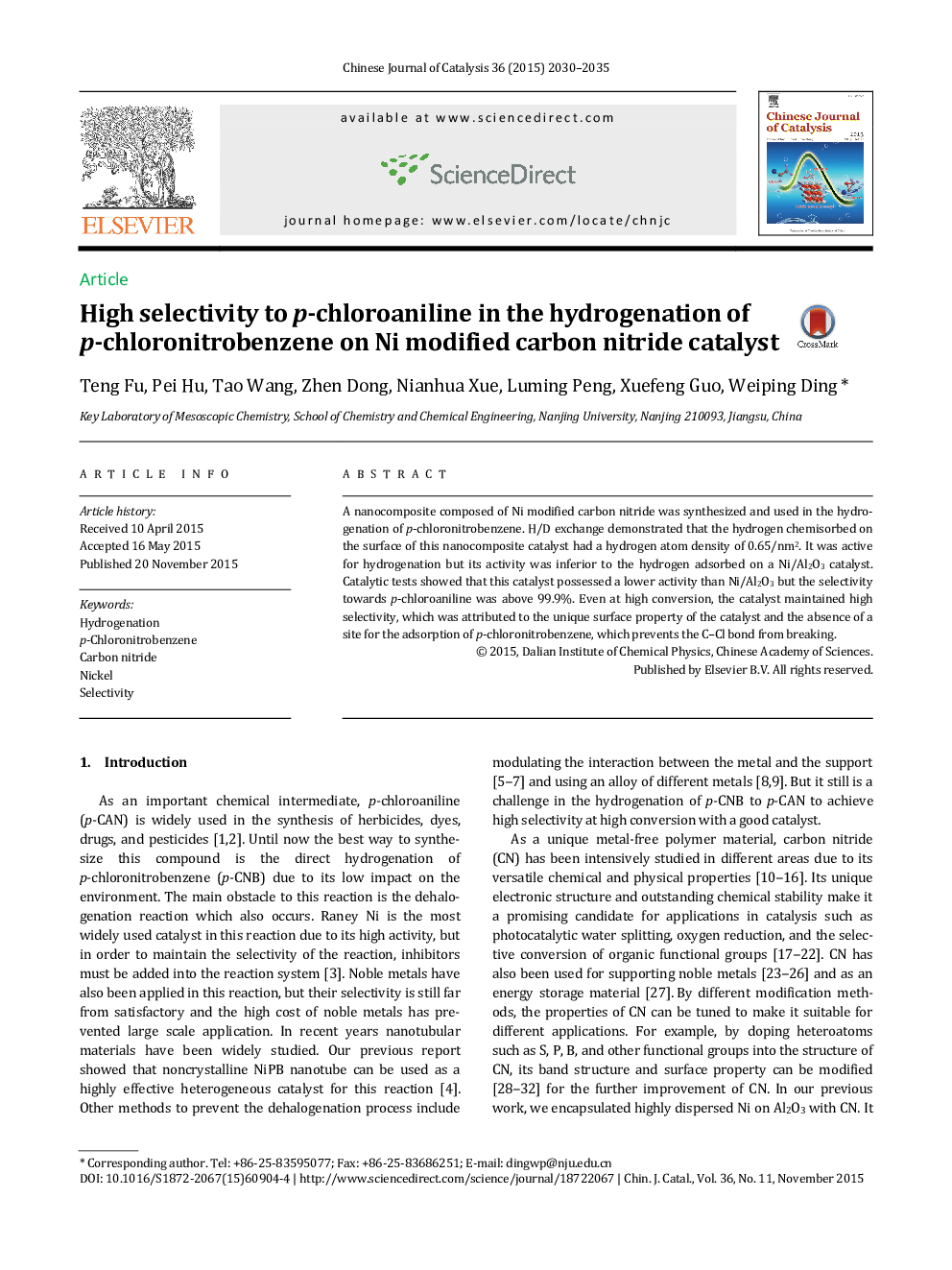| Article ID | Journal | Published Year | Pages | File Type |
|---|---|---|---|---|
| 59823 | Chinese Journal of Catalysis | 2015 | 6 Pages |
A nanocomposite composed of Ni modified carbon nitride was synthesized and used in the hydrogenation of p-chloronitrobenzene. H/D exchange demonstrated that the hydrogen chemisorbed on the surface of this nanocomposite catalyst had a hydrogen atom density of 0.65/nm2. It was active for hydrogenation but its activity was inferior to the hydrogen adsorbed on a Ni/Al2O3 catalyst. Catalytic tests showed that this catalyst possessed a lower activity than Ni/Al2O3 but the selectivity towards p-chloroaniline was above 99.9%. Even at high conversion, the catalyst maintained high selectivity, which was attributed to the unique surface property of the catalyst and the absence of a site for the adsorption of p-chloronitrobenzene, which prevents the C–Cl bond from breaking.
Graphical AbstractNickel modified carbon nitride used in the hydrogenation of p-chloronitrobenzene to p-chloroaniline exhibited very high selectivity at high conversion.Figure optionsDownload full-size imageDownload as PowerPoint slide
